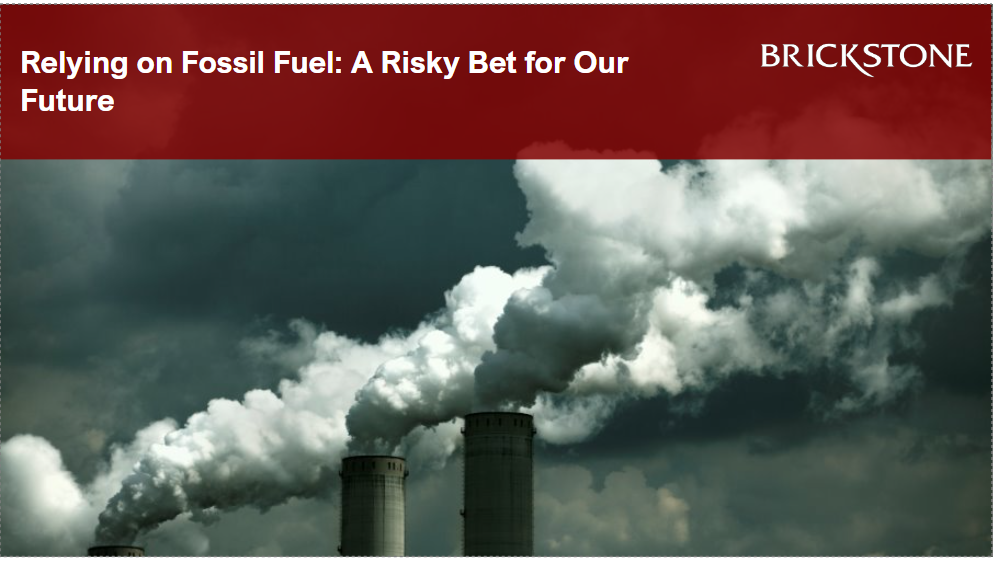Relying on Fossil Fuels: A Risky Bet for Our Future
Relying on Fossil Fuels: A Risky Bet for Our Future
The report Still Banking on Fossil Fuels offers a critical analysis of multilateral development institutions’ continued investments in fossil fuels, emphasizing the implications for Africa’s future development. The report argues that despite multilateral development institutions’ mandate to foster sustainable development, their financial support for fossil fuel projects threatens the continent’s long-term economic and environmental well-being. With significant investment still channelled into fossil fuel infrastructure, the report highlights the risk of stranded assets, climate vulnerability, and missed opportunities for Africa to transition to renewable energy.
The report opens by outlining multilateral development institutions’ role in financing energy projects and their influence on the continent’s development trajectory. While multilateral development institutions have made some commitments towards climate mitigation and adaptation, they continue to invest in fossil fuels, particularly natural gas, under the guise of “transition fuels.” The document argues that this approach is shortsighted and fails to recognize the urgency of the global shift towards renewables. The authors critique the lack of a comprehensive fossil fuel exclusion policy and note that investments in gas infrastructures are locking Africa into a fossil-dependent future at a time when the world is moving away from such energy sources.
One of the key insights from the report is the inherent risk of stranded assets, especially as global demand for fossil fuels declines. This is particularly relevant in the wake of Europe’s shifting energy policies due to the Russian invasion of Ukraine, which has temporarily increased Africa’s role in gas exports. However, the report warns that this demand will eventually wane as Europe accelerates its transition to greener energy. As a result, Africa’s long-term investments in fossil fuel infrastructure, like gas pipelines and export terminals, could become obsolete, leaving African governments and citizens to bear the financial burden of underutilized assets.
The report provides detailed data on multilateral development institutions’ financing mechanisms, showing how investments continue to favour fossil fuels through financial intermediaries, despite the growing global focus on sustainability. The lack of transparency in these transactions makes it difficult for civil society to track where funds are being allocated, further exacerbating the problem. The report calls for multilateral development institutions to fully align their operations with the Paris Agreement and prioritize investments in renewable energy projects that can provide long-term socio-economic benefits for African countries.
A key theme is the tension between Africa’s development needs and the demands of international markets. The report emphasizes that while gas infrastructure development might bring short-term economic benefits through exports, it does little to address Africa’s domestic energy needs. With over 600 million Africans lacking access to electricity, the focus on export infrastructure overlooks the continent’s urgent requirement for affordable, reliable energy. Multilateral development institutions’ current approach, the report suggests, is more aligned with the interests of the Global North than with Africa’s long-term development goals.
The environmental impact of continued fossil fuel production is another critical issue raised. The report points to the destruction of biodiversity, water pollution, and air quality degradation caused by fossil fuel projects across the continent. These local impacts, combined with the global challenge of climate change, make a strong case for multilateral development institutions to re-evaluate their role in perpetuating fossil fuel dependency. The authors argue that African governments, with multilateral development institutions’ support, should seize the opportunity to leapfrog fossil fuel-based energy systems and invest in renewable technologies that can deliver both economic growth and climate resilience.
In its conclusion, the report calls for a radical shift in the multilateral development institutions’ financing strategies. It urges the bank to adopt a full fossil fuel exclusion policy and redirect its investments toward clean energy solutions. The authors argue that Africa has vast untapped renewable energy potential, particularly in solar and wind, which could transform its energy landscape and provide sustainable development opportunities for future generations.
In summary, Still Banking on Fossil Fuels offers a thorough examination of the risks and missed opportunities associated with the multilateral development institutions’ fossil fuel investments. The report makes a compelling case for Africa to embrace renewable energy as the cornerstone of its development strategy, ensuring long-term energy security, economic stability, and environmental sustainability. It challenges multilateral development institutions to rethink their approach and take bold steps toward a fossil-free future, prioritizing the needs of Africans over the interests of foreign markets and fossil fuel industries.
This article by Brickstone reviews Power Shift Africa’s publication on Still Banking on Fossil Fuel.
Read the complete publication here





